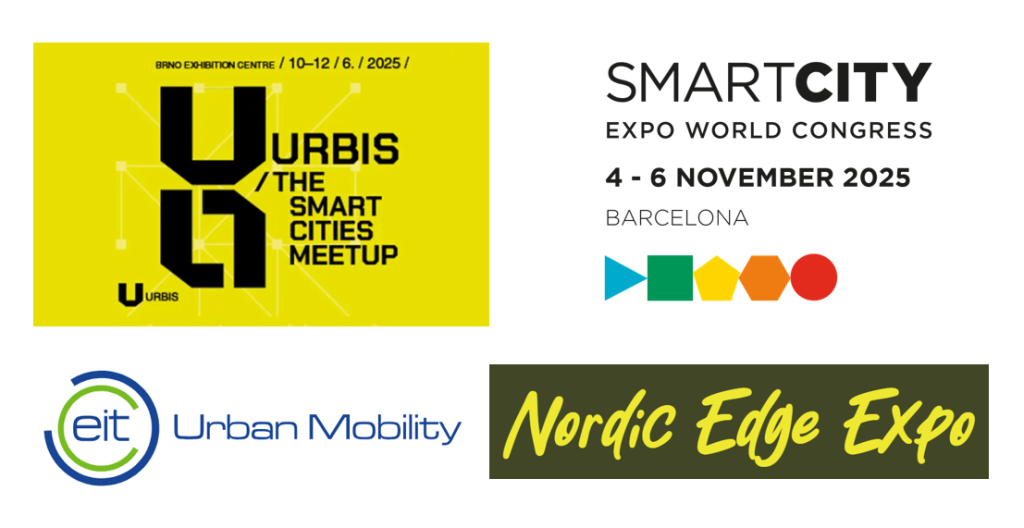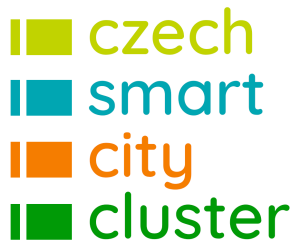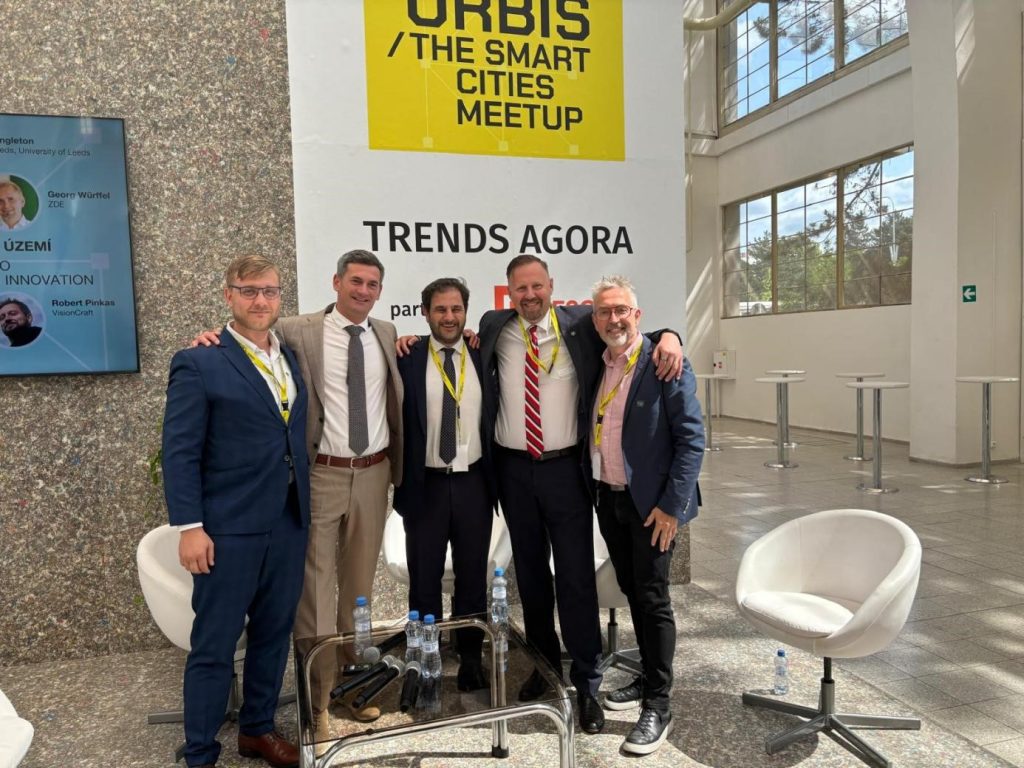URBIS 2025: Strengthening European Smart City Connections
Introduction:
At URBIS Smart City Fair 2025 in Brno, Czech Smart City Cluster contributed to shaping the European smart city discourse through two high-impact panel discussions. Topics ranged from the vision for Smart Cities 2030 to deeper collaboration between major international expos. The sessions highlighted the Czech Republic’s ambition to act as a connector and active contributor in shaping smart city collaboration across Europe — with a focus on building stronger partnerships and shared agendas with leading international events.
URBIS 2025: Strengthening European Smart City Connections
This year’s URBIS Smart City Fair in Brno once again confirmed its position as a key meeting point in Central Europe for innovators, decision-makers, and public sector leaders shaping the cities of tomorrow.
Held in June 2025, the event offered a rich and diverse program covering a broad spectrum of urban innovation topics — from sustainable mobility to digital governance, smart energy, urban planning, and citizen engagement. The fair served as both a showcase and a laboratory, where real-world solutions were debated, tested, and challenged.
Czech Smart City Cluster was an active contributor to this agenda, participating in two key panel discussions that addressed the strategic direction of smart cities both locally and globally.
What Will Smart Cities Look Like in 2030?
In the panel Smart City 2030, Czech Smart City Cluster board member Tomáš Janča joined a group of experts to explore the roadmap for smart urban development over the next five years. The discussion focused on the essential elements that will define smart cities in 2030 — not only in terms of technology, but also governance, planning, and collaboration. Among the key questions raised were:
- How can cities develop effective and resilient strategies in the face of geopolitical shifts?
- What role does the principle of smart specialization play in urban policy?
- How should responsibilities be distributed among cities, regions, national governments, academia, and the private sector?
The panel emphasized the importance of the quadruple helix model — where collaboration between public authorities, businesses, universities, and citizens becomes a cornerstone of innovation. The influence of international cooperation was also examined, with case studies and practices demonstrating how global connections can elevate local outcomes. Smart cities, it was argued, must be seen not only as high-tech infrastructures, but also as strategically governed, inclusive and resilient ecosystems.

A New Alliance of Smart City Expos
Another key highlight of URBIS 2025 was the international panel When Europe Builds Smart Cities Together: Barcelona, Brno and Stavanger as Partners, moderated by Roman Dostál, Head of the Mobility Group at Czech Smart City Cluster.
This landmark session brought together leaders from three of Europe’s most prominent smart cities: Smart City Expo World Congress (Barcelona), Nordic Edge (Stavanger) and URBIS (Brno).

It was the first time that representatives of these flagship events met on one stage to explore the idea of collaboration rather than competition. Speakers including Ugo Valenti (CEO, SCEWC Barcelona), Gunnar Edwin Crawford (Head of Innovation Cluster, Nordic Edge), Jan Kubata (General Director, BVV Trade Fairs Brno), and Traian Urban (Director, EIT Urban Mobility Innovation Hub East) reflected on their event’s origins, evolution, and future directions.
The discussion raised critical questions:
- Who are these events truly designed for — and what lasting value do they provide?
- Are European expos coordinated enough to support each other, or are they still operating in isolation?
- Can these gatherings become genuine catalysts for partnerships, or are they primarily presentation platforms?
Speakers shared candid insights into challenges such as maintaining relevance, avoiding audience fatigue, and ensuring international engagement. Importantly, the panel explored how smart city expos might evolve into living labs — testing grounds for pilot projects, innovation matchmaking, and cross-sector cooperation.
Towards a Coordinated European Smart City Agenda
This panel discussion was not merely symbolic; it emerged from a vision that Czech Smart City Cluster helped initiate: to foster deeper cooperation among Europe’s leading smart city expos and create a strategic axis — Brno, Berlin, Barcelona — that supports knowledge exchange, policy alignment, and urban innovation.
Through this initiative, the Cluster seeks to fulfill its role as a facilitator and educator, supporting municipalities and regions in navigating the smart city landscape. By helping align events and stakeholders across Europe, the goal is to strengthen synergies and amplify impact — ensuring that local efforts benefit from global insights and vice versa.
As conversations continue and the seeds of collaboration take root, URBIS 2025 may well be remembered not just as a successful event, but as a pivotal moment in shaping a more connected and collaborative future for Europe’s smart cities.

